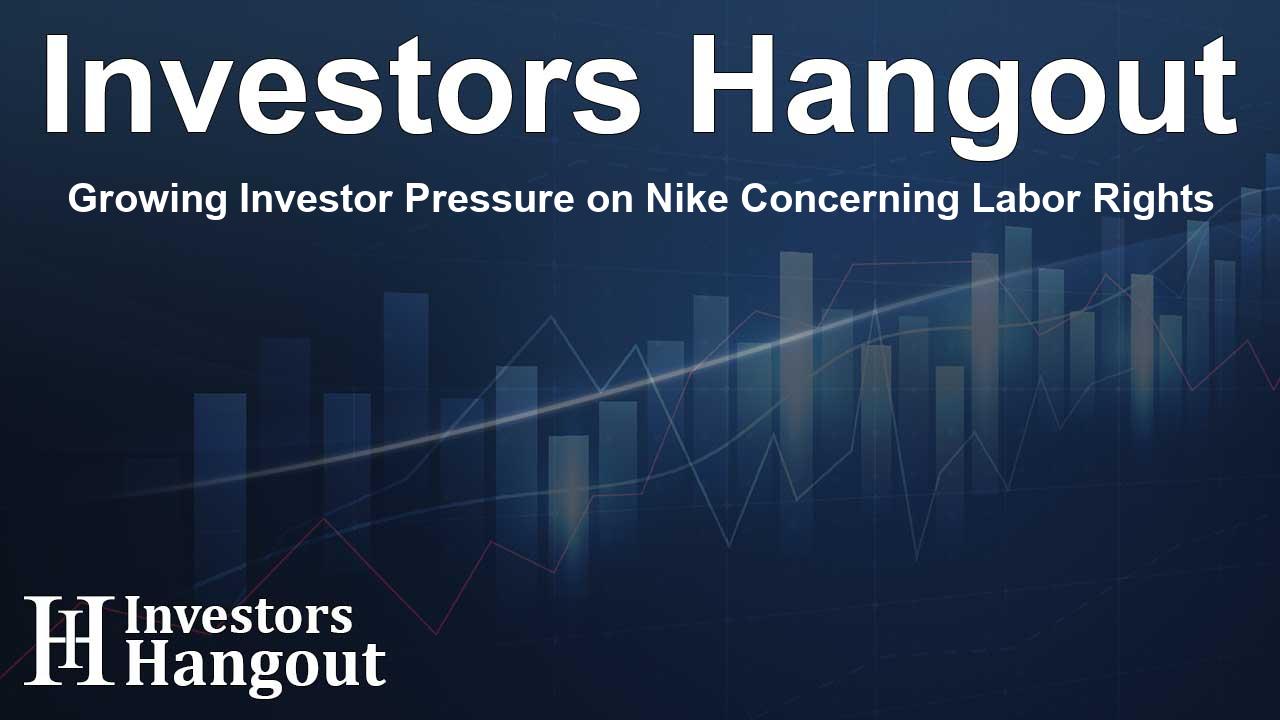Growing Investor Pressure on Nike Concerning Labor Rights

Investor Concerns Regarding Labor Rights and Nike
As the annual shareholder meeting approaches, pressure from investors on Nike (NYSE: NKE) is growing. A key player in this movement is Norway's sovereign wealth fund, which is backing a resolution aimed at improving working conditions in garment factories. This heightened scrutiny comes amid Nike's current struggles, including falling sales and ongoing criticism of its supply chain practices.
Challenges Nike Faces in Supply Chain Management
The difficulties Nike is encountering are highlighted by a recent downgrade from investment research firm MSCI, which labeled the company a 'laggard' in supply chain labor standards for both 2022 and 2023. The activist investor group, Domini Impact Equity Fund, has been particularly vocal in advocating for necessary reforms, pointing out that the current industry standards often fail to adequately address serious rights violations such as wage theft and unsafe working environments.
Advocating for Binding Agreements
The resolution put forth by the group of investors calls for Nike to consider establishing binding agreements with its factory workers, especially in countries where labor practices are questionable. The goal is to empower workers to assert their rights and enhance transparency throughout the supply chain.
Allegations and Nike's Response
Last year, more than 60 investors jointly urged Nike to provide compensation to workers in Cambodia and Thailand who were reportedly denied severance pay after factory closures during the pandemic. While Nike has denied these allegations, they highlight the ongoing tensions between the company and its investors concerning labor rights. In its response, Nike expressed gratitude for the chance to engage with shareholders and recognized the importance of maintaining an open dialogue.
Investor Actions and Reactions
Despite Nike's management recommending a rejection of the resolution, Norway's fund, one of Nike's largest shareholders, has chosen to support it. Additionally, investor Tulipshare has submitted a separate proposal asking Nike to reevaluate the effectiveness of its supply chain management, which received 11.7% support last year.
The Need for Improved Oversight
Several shareholder advisory firms have advised against both resolutions. However, organizations like Frankfurt-based Union Investment have indicated their intention to support the proposals, stressing the importance of Nike understanding the risks associated with legal and human rights issues in its strategies.
Impact of New Regulations
The changing regulatory environment, particularly highlighted by the European Union's Corporate Sustainability Due Diligence Directive, increases the urgency for companies to enhance their supply chain management practices. Such regulations could significantly affect Nike's operations and require considerable improvements in reporting and compliance.
Conclusion: Messages for Shareholders and Investors
If either proposal receives over 20% of the votes during the shareholder meeting, it would signal to Nike that labor rights issues are a significant concern for its investors. This divide among investors emphasizes the need for better protective measures for workers and greater accountability from Nike regarding its sourcing practices.
Frequently Asked Questions
What is the main issue investors have with Nike?
Investors are urging Nike to enhance labor conditions and address human rights concerns within its supply chain.
What proposals are being presented at the shareholder meeting?
Investors are proposing resolutions aimed at creating binding agreements with factory workers and reassessing supply chain management practices.
Who is backing the resolution supporting garment workers?
Norway's sovereign wealth fund is a key supporter of the resolution that seeks to improve working conditions at Nike's factories.
What was the reaction of Nike's management to the proposals?
Nike's management has recommended that shareholders reject the proposals, while emphasizing their commitment to ongoing engagement with shareholders.
How could regulatory changes impact Nike's operations?
New regulations may compel Nike to strengthen its supply chain practices and improve reporting on labor rights, which could affect the company's global operations.
About The Author
Contact Dylan Bailey privately here. Or send an email with ATTN: Dylan Bailey as the subject to contact@investorshangout.com.
About Investors Hangout
Investors Hangout is a leading online stock forum for financial discussion and learning, offering a wide range of free tools and resources. It draws in traders of all levels, who exchange market knowledge, investigate trading tactics, and keep an eye on industry developments in real time. Featuring financial articles, stock message boards, quotes, charts, company profiles, and live news updates. Through cooperative learning and a wealth of informational resources, it helps users from novices creating their first portfolios to experts honing their techniques. Join Investors Hangout today: https://investorshangout.com/
The content of this article is based on factual, publicly available information and does not represent legal, financial, or investment advice. Investors Hangout does not offer financial advice, and the author is not a licensed financial advisor. Consult a qualified advisor before making any financial or investment decisions based on this article. This article should not be considered advice to purchase, sell, or hold any securities or other investments. If any of the material provided here is inaccurate, please contact us for corrections.
